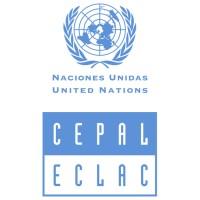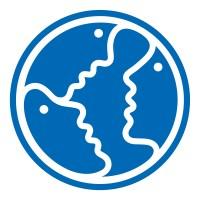ECLAC
Created in 1948


Up & running (A)
Existing signals show a regular activitySocial networks
19,641 11,953 7,173 506,949 49,509Activities
Entity types
Location
Dag Hammarskjold 3477, Vitacura, Región Metropolitana, Chile
Vitacura
Chile
Employees
Scale: 501-1000
Estimated: 560
Engaged catalyst
20
0 0Added in Motherbase
5 years, 3 months ago
Value proposition
[Automatic translation follows] Economic Commission for Latin America and the Caribbean, ECLAC.
The Economic Commission for Latin America (ECLAC) was established by Resolution 106 (VI) of the Economic and Social Council, of February 25, 1948, and began operating that same year. In its 1984/67 resolution, of July 27, 1984, the Council decided that the Commission will be renamed Economic Commission for Latin America and the Caribbean.
ECLAC is one of the five regional commissions of the United Nations and its headquarters is in Santiago, Chile. It was founded to contribute to the economic development of Latin America, coordinate the actions aimed at its promotion and reinforce the economic relations of the countries with each other and with the other nations of the world. Subsequently, his work was extended to the Caribbean countries and the objective of promoting social development was incorporated.
ECLAC has two subregional headquarters, one for the subregion of Central America, located in Mexico, D.F. and the other for the subregion of the Caribbean, in Puerto España, which were established in June 1951 and in December 1966, respectively. It also has national offices in Buenos Aires, Brasilia, Montevideo and Bogotá and a link office in Washington, D.C.
Interest links:
How to get started with inspire: https://bit.ly/2ggsn67
How to Complete Your PHP: https://bit.ly/2ppjzll
Application Process at The Un: https://bit.ly/1cq0kgm
RECRUITMENT OF STAFF AT THE UN: https://hr.un.org/page/recruitment-un
Recruitment of consultants and individual contractors at the una: https://bit.ly/2avchxj
Internship Program: https://bit.ly/1d8gfg8
Different Staff Categories: https://bit.ly/1kb8dkf
How to prepare for competent interview: https://bit.ly/1miaumj
DIFFERENT TYPES OF APPOINTMENT AT THE UN: https://bit.ly/2gnd6hdOriginal language
Comisión Económica para América Latina y el Caribe, CEPAL.
La Comisión Económica para América Latina (CEPAL) fue establecida por la resolución 106 (VI) del Consejo Económico y Social, del 25 de febrero de 1948, y comenzó a funcionar ese mismo año. En su resolución 1984/67, del 27 de julio de 1984, el Consejo decidió que la Comisión pasara a llamarse Comisión Económica para América Latina y el Caribe.
La CEPAL es una de las cinco comisiones regionales de las Naciones Unidas y su sede está en Santiago de Chile. Se fundó para contribuir al desarrollo económico de América Latina, coordinar las acciones encaminadas a su promoción y reforzar las relaciones económicas de los países entre sí y con las demás naciones del mundo. Posteriormente, su labor se amplió a los países del Caribe y se incorporó el objetivo de promover el desarrollo social.
La CEPAL tiene dos sedes subregionales, una para la subregión de América Central, ubicada en México, D.F. y la otra para la subregión del Caribe, en Puerto España, que se establecieron en junio de 1951 y en diciembre de 1966, respectivamente. Además tiene oficinas nacionales en Buenos Aires, Brasilia, Montevideo y Bogotá y una oficina de enlace en Washington, D.C.
Links de interés:
How to get started with Inspira: https://bit.ly/2GGSN67
How to complete your php: https://bit.ly/2PpJzLL
Application process at the UN: https://bit.ly/1CQ0kGm
Recruitment of staff at the UN: https://hr.un.org/page/recruitment-un
Recruitment of consultants and individual contractors at the UN: https://bit.ly/2AvchXj
Internship programme: https://bit.ly/1d8gFG8
Different Staff categories: https://bit.ly/1kB8DKF
How to prepare for a Competency Based Interview: https://bit.ly/1MIaUmJ
Different types of appointment at the UN: https://bit.ly/2GnD6hd
Comisión Económica para América Latina y el Caribe
La CEPAL es una de las cinco comisiones regionales de las Naciones Unidas y su sede está en Santiago de Chile. Se fundó para contribuir al desarrollo económico de América Latina, coordinar las acciones encaminadas a su promoción y reforzar las relaciones económicas de los países entre sí y con las demás naciones del mundo. Posteriormente, su labor se amplió a los países del Caribe y se incorporó el objetivo de promover el desarrollo social.
https://www.cepal.org/es

| Catalyst | Type | Tweets | Articles | |
|---|---|---|---|---|
 OECD - OCDE International development, International Affairs | OECD - OCDE International development, International Affairs | Other 10 Mar 2022 | | |
 McKinsey & Company Consulting, Business Consulting and Services | McKinsey & Company Consulting, Business Consulting and Services | Other 18 Apr 2018 | | |
 Google IT services, Software Development | Google IT services, Software Development | Other 20 Apr 2018 | | |
 The World Bank International development, International Trade and Development | The World Bank International development, International Trade and Development | Other 23 Jun 2021 | | |
 Agence Française de Développement International development, Banking | Agence Française de Développement International development, Banking | Not capitalistic Not partnership Event 28 Oct 2021 | | |
 Enel Group Energy, Utilities | Enel Group Energy, Utilities | Other 27 Oct 2020 | | |
 IDDRI Research, Research Services | IDDRI Research, Research Services | Not capitalistic Not partnership Event 27 Sep 2019 | | |
 SEI — Stockholm Environment Institute Research, Research Services | SEI — Stockholm Environment Institute Research, Research Services | Other 20 Nov 2019 | | |
 Chatham House Think Tanks | Chatham House Think Tanks | Other 21 Nov 2019 | | |
 IPBES Environmental Services | IPBES Environmental Services | Other 7 Mar 2022 | | |